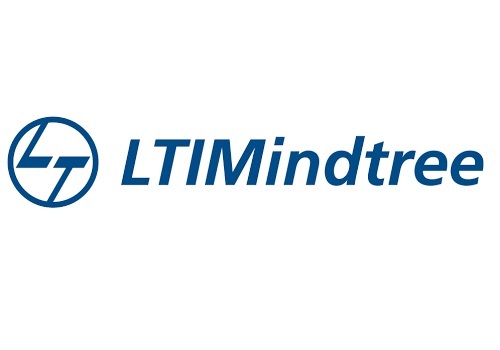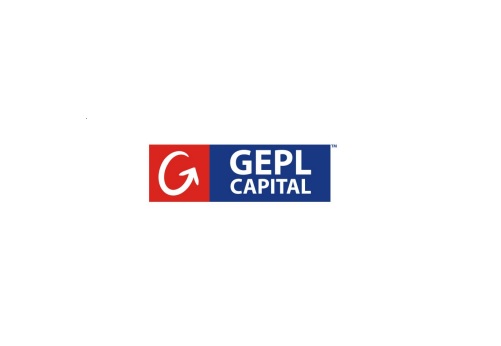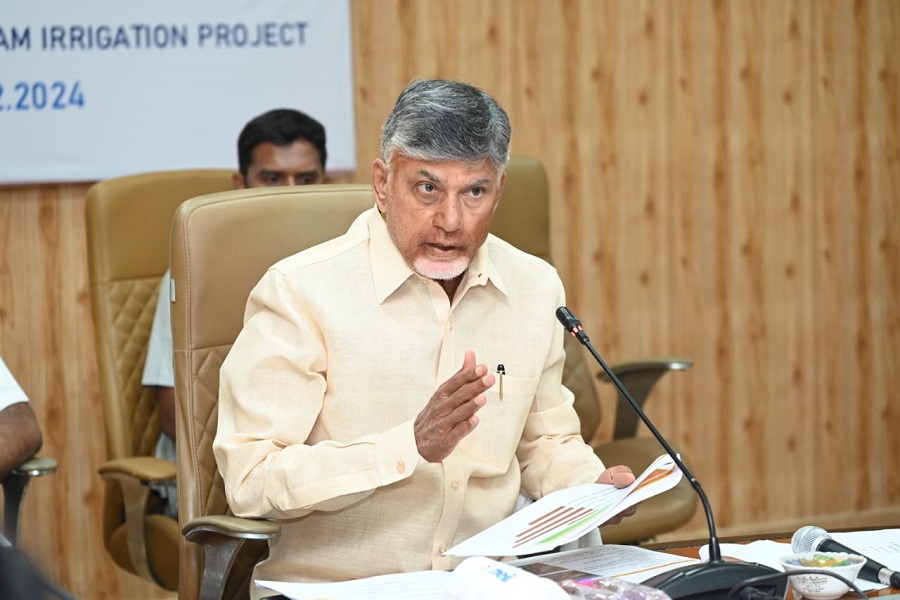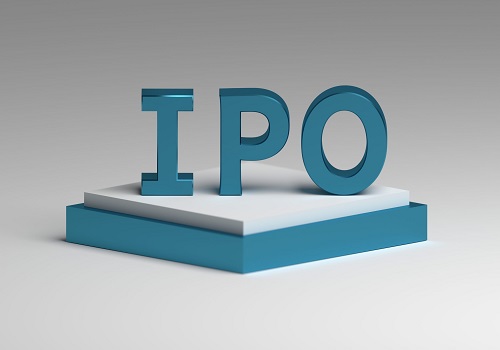Zinka Logistics Solution coming with IPO to raise upto Rs 1144.52 crore

Zinka Logistics Solution
- Zinka Logistics Solution is coming out with a 100% book building; initial public offering (IPO) of 4,19,23,830 shares of Rs 1 each in a price band Rs 259-273 per equity share.
- Not more than 75% of the issue will be allocated to Qualified Institutional Buyers (QIBs), including 5% to the mutual funds. Further, not less than 15% of the issue will be available for the non-institutional bidders and the remaining 10% for the retail investors.
- The issue will open for subscription on November 13, 2024 and will close on November 18, 2024.
- The shares will be listed on BSE as well as NSE.
- The face value of the share is Rs 1 and is priced 259 times of its face value on the lower side and 273 times on the higher side.
- Book running lead managers to the issue are Axis Capital, Morgan Stanley India Company, JM Financial and IIFL Capital Services.
- Compliance Officer for the issue is Barun Pandey.
Profile of the company
Zinka Logistics Solution is India’s largest digital platform for truck operators (in terms of number of users), with 963,345 truck operators in the country transacting on its platform in Fiscal 2024, which comprises 27.52% of India’s truck operators. India’s growing economy needs the support of robust logistical capabilities and small and medium size truck operators are the backbone of logistics in the country. These truck operators are served through value chains which are unorganized and fragmented, making their operations inefficient. It is on a mission to digitally empower India’s truck operators, helping them manage their business and grow their income. Using its platform, its customers (primarily comprising truck operators) digitally manage payments for tolling and fueling, monitor drivers and fleets using telematics, find loads on its marketplace and get access to financing for the purchase of used vehicles.
Truck operators use the BlackBuck mobile application (the BlackBuck App) for their diverse business needs. Its offerings solve critical problems for its customers and form an integral part of their daily lives. In the three months ended June 30, 2024 and Fiscal 2024, its monthly transacting truck operators were active for more than 16.26 days and 16.18 days, respectively, in a month and on an average spent 41.54 minutes and 39.56 minutes, respectively, daily, on the BlackBuck App. The needs of the trucking industry are very specific and the truck operator's demography in India is unique. It has built its offerings and distribution strategy specifically for these users and the industry, and this is the key underlying reason for the strong truck operator engagement on the BlackBuck App and the market share it possess.
The company follows an omnichannel customer onboarding and servicing strategy, which is made specifically for the demography of its customer base. It has a digital-led marketing strategy which provides awareness of its solutions and brand to customers. Using a combination of an on-ground sales force, channel partners and telesales it supports customers through their entire onboarding process. Among new-age digital platforms in the trucking sector, it has the largest physical network (in terms of number of Touchpoints) across India and as of June 30, 2024, it has sold and serviced its products across 628 districts constituting 80% of India’s districts, including in all of the major transportation hubs and across 76% of the toll plaza network in India. It has a digitally enabled network of 9,374 touchpoints to conduct onboarding and servicing activities as of June 30, 2024. Its network is one of its core strengths and enables it to build trust with customers and provides the necessary service infrastructure for its customers.
Proceed is being used for:
- Funding towards sales and marketing costs
- Investment in Blackbuck Finserve Private Limited, its NBFC subsidiary, for financing the augmentation of its capital base to meet its future capital requirements
- Funding of expenditure in relation to product development
- General corporate purposes
Industry Overview
India’s growing economy needs the support of robust logistical capabilities and small and medium size truck operators are the backbone of logistics in the country. These truck operators are served through value chains which are unorganized and fragmented, making their operations inefficient. Trucking is a highly fragmented industry. Trucking in India is highly fragmented in nature, with 75% of truck operators having less than 5 trucks. This pattern of fragmentation is visible in trucking across the globe. For instance, in China, 85% of trucks are owned by truck operators with less than five trucks. Similarly, the US has 80% of truck operators owning less than six trucks. High fragmentation in this industry is a result of multiple operationally complex processes required to run the business efficiently. Truck operators need to be actively involved in searching for loads for their trucks, managing payments, monitoring their truck movement, carrying out maintenance activities, managing drivers, taking care of working capital, amongst various other activities.
The trucking ecosystem provides diverse opportunities with large revenue pools. Technology-based businesses are poised to gain a competitive edge in India's trucking ecosystem, leveraging the scalability and customization capabilities. With the trucking ecosystem spanning across India, reaching truckers across the vast landscape presents a distribution challenge for traditional solutions, leading to increased costs. Technology addresses this issue by offering scalable and uniform solutions that can be customized to vernacular languages, thereby reducing costs and improving revenues by streamlining operations and reducing market driven inefficiencies. Digital platforms have the potential to bypass the current intermediary-led network, resulting in further cost savings and higher revenues for truckers.
India's rapid economic growth sets the stage for an expanding trucking sector, yet the industry's inherent inefficiencies pose challenges for truck operators. These challenges persist due to the industry's fragmented nature across the country. Addressing these issues presents substantial opportunities for companies competing in this domain. While digital platforms offer scalability, maintaining a physical presence is crucial for building trust with truck operators. Companies that effectively tackle these challenges stand to capture a significant market share in India's growing trucking industry. While there are numerous players in the market that offer piecemeal solutions across the truck operators’ journey, it’s the new-age, tech-led end-to-end players which have been able to disrupt the market. Out of these players, BlackBuck has been the most successful in scaling across the nation with the largest truck operator user base and GTV in Fiscal 2024.
Pros and strengths
India’s largest digital platform for truck operators: The company is India’s largest digital platform for truck operators (in terms of number of users) as of March 31, 2024, and it facilitated over 413.34 million transactions for 963,345 annual transacting truck operators in Fiscal 2024. It served 27.52% truck operators in India and facilitated 32.92% of the commercial vehicles tolling payments in Fiscal 2024. The company’s services are available across 628 districts, constituting 80% of India’s districts as of June 30, 2024. The company’s current market position is the foundation upon which it continues to build, as the highly fragmented trucking industry in India presents an immense opportunity for digital transformation. Its business model is centered around truck operators and aims to solve their challenges by providing them a digital platform to manage tolling and fueling payments, track their fleet real-time, find loads and financing for used vehicles to grow their business.
Strong network effects of platform resulting in robust customer retention rates: The company has a wide network of truck operators built over nine years of operations. It has been able to build a nationwide truck operator base through targeted digital and telemarketing campaigns and effective nationwide on-ground teams. Through this, it has been able to grow its customer base of annual transacting truck operators to 963,345 in Fiscal 2024 from 482,446 in Fiscal 2022. As its platform attracts more truck operators, it becomes increasingly appealing to partners seeking access to its wide network. As a result, the platform facilitates additional payment transactions, more active telematics devices and other essential services, resulting in enhanced fleet management efficiency. Moreover, as truck operators utilize more of its services, the platform gathers additional data, empowering it to refine its solutions and identify cross-selling opportunities. This, in turn, bolsters the platform’s appeal to truck operators, fostering their loyalty and increasing their engagement.
Repeatable playbook of creating and launching new offerings: The company focuses on addressing challenges faced by truck operators in India by creating innovative solutions. It aims to create new offerings that fill market gaps and meet customer needs. Using an agile product development approach, it utilizes feedback from its customers, to develop products which address their pain points in operations. When its product is primed for release, it implements a launch strategy that leverages its existing marketing channels and physical touchpoints to target a faster adoption among customers, at a lower cost. It was able to generate a significant scale of customers with the launch of its payments offerings. As it acquired more customers through its payments offering and started seeing higher engagement of customers on its platform, it thereafter launched its telematics offering. The strength of the existing customer base coupled with the depth and scale of its sales and distribution network helped it to scale the adoption of its telematics offerings rapidly.
Omnichannel distribution network: Truck operators in India are spread across metro, urban and rural communities. Building trust with truck operators on digital platforms requires significant handholding, due to a perceived lack of trust and familiarity with smartphone applications. It aims to solve this gap in trust and familiarity through its sales and service strategy. Its distribution strategy, covering both sales and servicing, is a mix of digital and physical Touchpoints to cater to the specific requirements of this set of users. It uses a mix of digital marketing and targeted notifications through the BlackBuck App and its 9,374 Touchpoints (as of June 30, 2024) on the ground, to acquire new customers, as well as cross-sell/upsell its products to existing customers. As of June 30, 2024, its Touchpoints include an 843-member telesales unit that reaches out primarily to its existing customers for upselling and cross-selling its products as well as 587 channel partners through whom it reaches out to truck operators for sales across multiple product offerings. As of June 30, 2024, it has sold and serviced its products in 80% of India’s districts, including in all the major transportation hubs and across 76% of the toll plaza network in India.
Risks and concerns
Revenues are significantly dependent on its payments and telematics offerings: The company’s platform provides its customers with payments, telematics, loads marketplace and vehicle financing offerings. It derives a significant portion of its revenues from its payments (which includes its tolling and fueling offerings) and telematics offerings (which includes vehicle tracking and fuel monitoring solutions). The company garnered 94.53%, 97.22% and 98.65% of revenue from payments and telematics offerings in FY24, FY23 and FY22 respectively. Any event which impacts its payments and telematics offerings, including any changes in the program management fees determined by the government or other regulatory changes, the introduction of new payment methods, advancements in electronic toll collection technologies, changes in the global trade policies and supplies, changes in economic conditions and consumer preferences and increased competition, could have a material adverse effect on its business, results of operations and financial condition.
Dependent on limited suppliers to procure a maximum portion of vehicle tracking solutions: It is dependent on certain key suppliers for purchasing its vehicle tracking solutions. The company purchases 81.81%, 90.68% and 83.12% of vehicle tracking solutions from top 3 suppliers in FY24, FY23 and FY22 respectively. The company procures its supplies from these suppliers on the basis of short-term arrangements, typically through purchase orders. In addition to the supply of vehicle tracking solutions, these suppliers typically also provide software, installation services, trainings, support and on-ground servicing to its customers for the first year after purchase. In the absence of exclusive or long- term contracts, its suppliers may not be obligated to supply their products to it and/or may choose to sell their products to its competitors. Non-availability or inadequate quantity or quality of vehicle tracking solutions could have a material adverse effect on its business, results of operations and financial condition.
High attrition among its employees: The company’s ability to sustain its rate of growth depends upon its ability to manage key issues such as selecting and retaining its employees, upskilling its employees, addressing emerging workforce challenges, and ensuring a high standard of customer service. As of June 30, 2024, the company had a total of 1,849 permanent employees and engaged 3,688 contract workers. In the event, its employee relationships deteriorate, or it experiences significant labor unrest, strikes, work stoppages and other labor action, there could be an adverse impact on its operations. The company faced high attrition among its employees in the past (37.32% and 41.08% in the three months ended June 30, 2024 and Fiscal 2024, respectively). Its continued success is dependent on its employees, key management personnel and senior management personnel and its inability to attract and retain employees, key management personnel or the loss of services of its senior management personnel in the future may have an adverse effect on its business, results of operations and financial condition.
Limited experience in its vehicle financing offering: While the company partnered with its Financial Partners to provide vehicle financing loans on a pilot basis from June 2022, it has limited experience in disbursing vehicle financing loans through on-balance sheet transactions, i.e., through its subsidiary, BlackBuck Finserve, to its customers. BlackBuck Finserve, is a non-banking financial company which received its license to carry on the business of a non-banking financial institution without accepting public deposits from the RBI in August 2023 and commenced lending operations in October 2023. Certain of its competitors may have a longer operating history and more experience as compared to it in this business offering. In addition, these operations may be accompanied by operating and marketing challenges that may be different from those it has encountered in relation to its other business offerings.
Outlook
Zinka Logistics Solution offers a digital platform, the BlackBuck app, for truck operators. In the fiscal year 2024, 963,345 truck operators in the country conducted their business through the platform, representing 27.52% of all Indian truck operators. The company’s BlackBuck app is a platform that offers payments, telematics, a freight marketplace, and vehicle financing services to help truck operators achieve their goals efficiently. On the concern side, the company’s revenues are significantly dependent on its payments and telematics offerings, which contributed 92.79% and 94.53% to its total revenue from continuing operations in the three months ended June 30, 2024 and Fiscal 2024, respectively. Any negative impact on these offerings could materially affect its business, results of operations and financial condition. Moreover, the company depends on certain key suppliers to procure a significant portion of its vehicle tracking solutions. It does not enter into long-term agreements with these suppliers and any denial of supplies or loss of the relationship with these suppliers or any supply chain disruption could adversely affect its business, results of operations and financial condition.
The company is coming out with a maiden IPO of 4,19,23,830 equity shares of Rs 1 each. The issue has been offered in a price band of Rs 259-273 per equity share. The aggregate size of the offer is around Rs 1085.83 crore to Rs 1144.52 crore based on lower and upper price band respectively. On performance front, the company’s revenue from continuing operations increased by 69.01% to Rs 2,969.22 million in Fiscal 2024 from Rs 1,756.80 million in Fiscal 2023, primarily due to an increase in its average monthly transacting truck operators which led to an increase in its commission income, subscription fees and service fees. Moreover, its restated loss for the period/year decreased to Rs 1,939.49 million in Fiscal 2024 from loss of Rs 2,904.98 million in Fiscal 2023.
The company’s success in the logistics industry can be attributed primarily to its investments made towards distribution and servicing for its customers. Its distribution strategy is well aligned with the demography of its customer base and the nature of its products and solutions, which has brought it continuous success over the years. It intends to continue to focus on growing its customer base by attracting new transacting truck operators to its platform. The company will do this by investing in deepening its distribution base and increasing the density of its distribution in key strategic pockets across India, where its proportionate market shares are lower, such as Gujarat, Karnataka and Tamil Nadu. This will make its offerings available to a larger number of truck operators and allow it to gain market share.






















